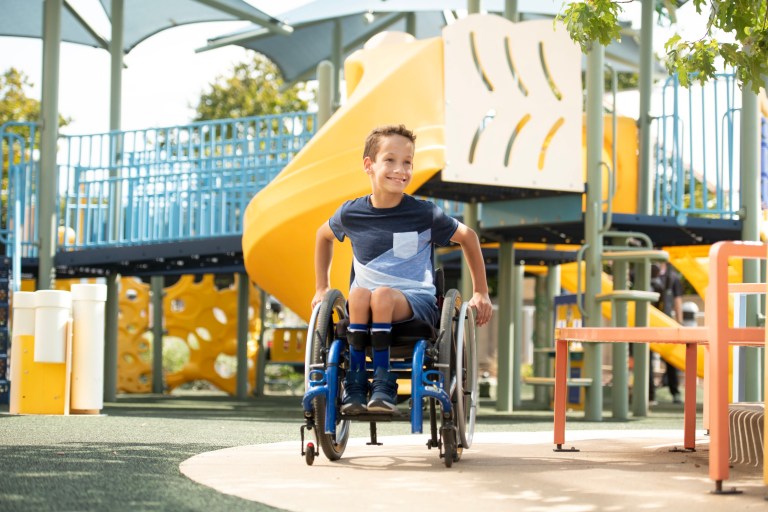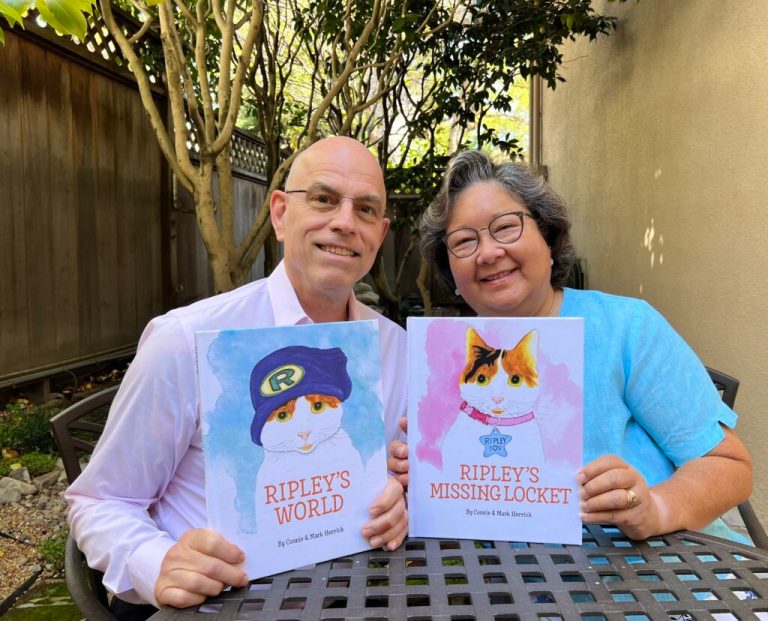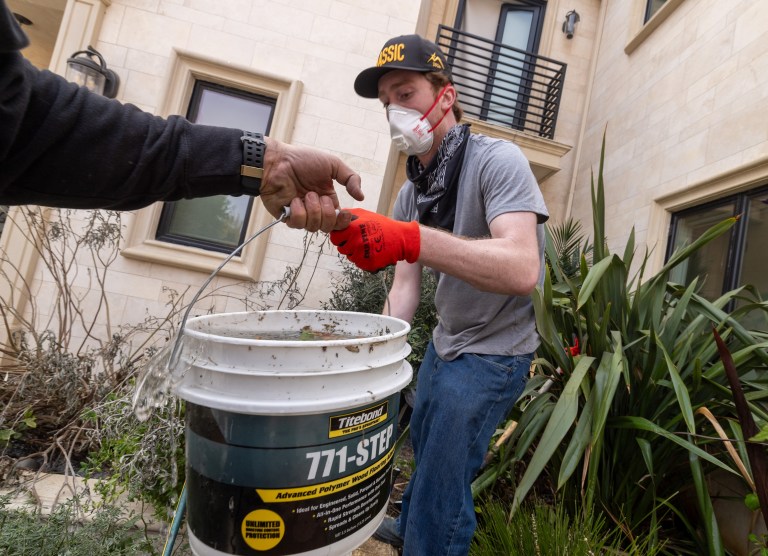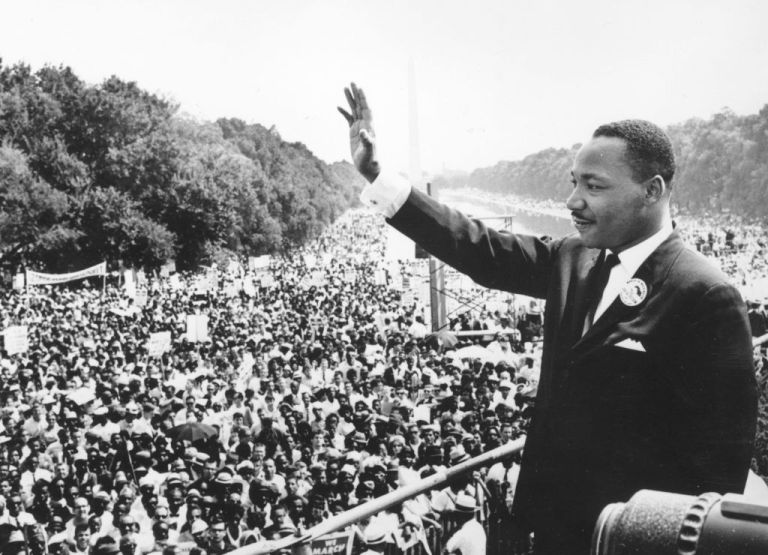Loss is an inextricable, indiscriminate part of life. Yet when we witness others experiencing it, despite our best intentions, the “right” things to say or do so often elude us — even those of us who have suffered our own deep losses.
“I still have struggled when I’ve been with a grieving person,” grief specialist and activist Angie Cartwright shared with Nice News. In 2014, after experiencing a series of tragic deaths over the course of her life, Cartwright founded National Grief Awareness Day, observed annually on August 30. The day is both a reminder to support the bereaved and a call to action to shift our perspectives on grief, to resist viewing it as something that needs to be solved, or even worse, avoided altogether.
In an effort to shed some light on a topic frequently relegated to the shadows, we spoke to three experts about how to best support someone who is grieving. Read on for their advice, but as you do, remember that there is no one-size-fits-all answer. Said Cartwright: “It’s not, ‘one helping thing will fit everybody.’ It’s about being aware of grief and learning about grief as much as you can.”
If you’ve experienced loss and are looking for help, scroll to the end of this article for a list of resources.
Reach Out
Immediately after a loss, many people worry they might be bothering the grieving individual by reaching out, and believe that, instead, they should give that person space. Alan Wolfelt, a grief counselor and director of the Center for Loss and Life Transition, stresses that the opposite is true. “Show up early on,” he said, adding: “I’d rather you go and put your foot in your mouth than to stay away. Your presence is symbolic of your love. It’s not so much what you say, it’s you showing up.”
“Some people might teach you they need to go into exile for a while and then come out,” he went on. “You still attempt to reach out, and then you match up what their style is.”

He recommends reaching out in person whenever possible and appropriate, though calling and texting are the next best things.
In his book Sympathy & Condolences: What to Say and Write to Convey Your Support After a Loss, Wolfelt warns against “overestimating the number of people” who show up to offer support. “Don’t assume that they have lots of friends and family members at their side in the immediate aftermath of a loss,” he writes, “because all too often this is not the case.”
What (Not) to Say
All three of the experts we spoke to for this piece stressed that it isn’t what you say but how you say it — with compassion — that means the most. The best thing you can do? Listen.
“Here’s the thing: We love giving advice, and we love fixing people, but people in grief don’t need to be fixed because they’re not broken,” explained David Kessler, founder of the support group Tender Hearts and author of Finding Meaning: The Sixth Stage of Grief. He added: “They just need to be listened to and seen. Everyone wants to be seen, heard and valued.”
Though it’s true that words matter less than actions, there are some phrases to avoid.
Be careful not to “bright side people,” said Kessler. “Bright siding people is [saying], ‘At least they’re not suffering,’ or ‘Isn’t it good that they died quickly?’ We want to allow people to authentically be themselves and grieve. That’s the best gift we can give to one another is just to say, ‘Be yourself. I’ll meet you where you are.’”

Making comparisons should also be avoided, according to Cartwright. Refrain from saying things like, “I know how you feel,” she said, adding that though you may feel inclined to bring up your own loss as a means of relating, it’s better to simply practice deep listening.
For more specific guidance and suggestions, read this list of the “10 Best and 10 Worst things to Say to Someone in Grief.”
What to Do
When someone has experienced a deep loss, it can be difficult for them to function in their routine as normal. So in addition to just being present with the bereaved individual, consider offering help to lighten their load.
But rather than asking what you can do, Kessler recommends paying attention to the person’s day-to-day life. “People in grief don’t know what they need,” he said, adding, “and we often think, ‘Oh, I don’t know what they need.’ Well, they’re human beings just like you.”
If the individual has children, offer to babysit or take the kids to school or practices. If you notice dishes piling up, load the dishwasher. Dropping off food is another great way to help. And you don’t always need to wait for permission to pitch in. If you’re visiting a newly widowed friend and you see that her grass hasn’t been mowed — a task her husband used to handle, perhaps — then go ahead and cut it, Kessler suggests. “Look around and see what needs there are.”

What about showing support around death anniversaries or the birthdays of those who died? Kessler stresses the importance of not only remembering those dates, but also the days leading up to them.
“One of the things I think people don’t realize is that for people in grief, the days leading up to that anniversary are so much worse. So, to not wait for the day,” he explained. “To call a few days ahead and go, ‘Oh my gosh, I know your dad’s day of death is coming up, and it must be so hard. I’d love to take you to lunch. I’d love to stop by. I’m thinking of you.’ And just really don’t be afraid to do it ahead of time.”
Get Informed
“There’s no map for grief,” according to Kessler. “It’s an organic experience, and your grief is as unique as a fingerprint.” That said, grief is a universal experience. And the more aware you are, the better you can support someone who is grieving.
“Start reading,” Cartwright suggests. “If you love your friend … or if you have a person at work, if you care, go and get informed about grief. Listen to all the stories. If it’s a child they’ve lost, go read stories.” She stresses that the point is to not compare timelines and emotions, but to gain a greater understanding of the experience in general.
There are many helpful resources to aid you on your learning journey — we recommended starting with Grief Stories.
Let Go of Expectations
One of the best things you can do for someone who has experienced a loss is to allow them to grieve on their own terms and timeline — and the latter is often not linear. Grief is messy, the experts all emphasized, and that’s OK.
Though it can be difficult to watch someone you love be in pain, or to feel like they’ve changed from who they used to be, resist encouraging them to return to their former self.
“We don’t resolve grief,” Wolfelt explained. “We don’t get you back to an old you. You’re transformed. Transformation means an entire change in form. My helping goal is not resolution, it’s reconciliation. It comes from Middle English. It means to make your life good again.”
He added: “I always say closure is for windows and doors. It’s not for grief.”
Are you in grief? Explore these free resources to find help:
Grief.com
What’s Your Grief?
Grief Share
Center for Loss and Life Transition











